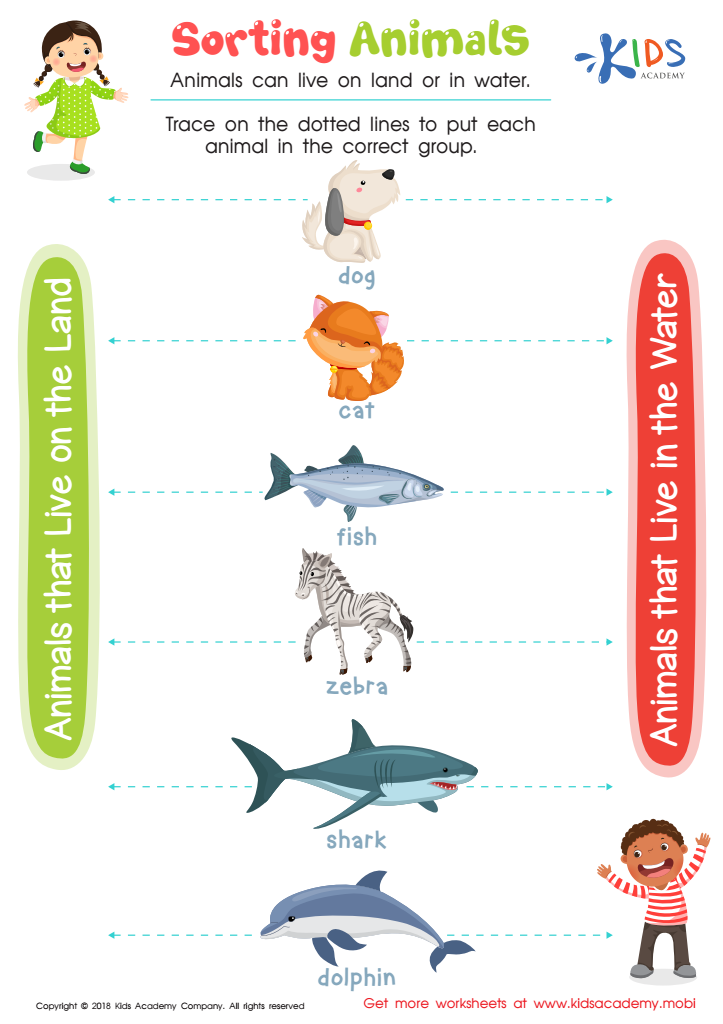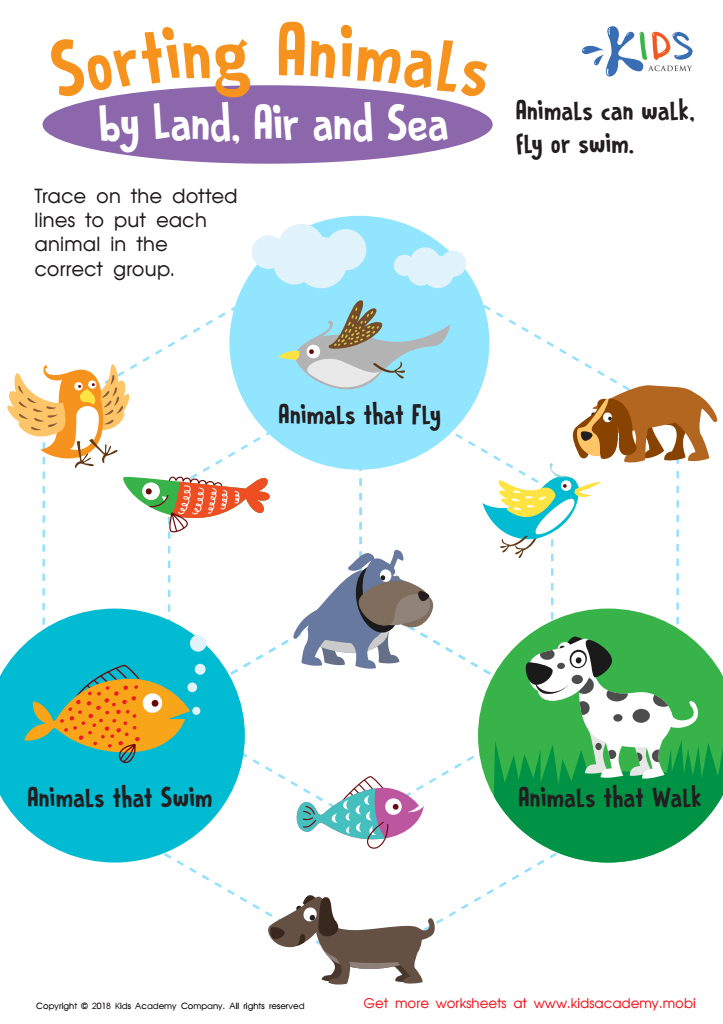Understanding habitats Normal Science Worksheets for Ages 6-9
4 filtered results
-
From - To
Explore the fascinating world of habitats with our "Understanding Habitats Normal Science Worksheets" designed for children ages 6-9. These engaging and interactive worksheets help young learners discover various ecosystems, including forests, deserts, oceans, and more. Through fun activities and insightful questions, kids will develop a deeper appreciation for wildlife and the environment. Each worksheet encourages critical thinking and scientific reasoning while reinforcing key concepts in a play-based manner. Perfect for classroom settings or home learning, our worksheets ignite curiosity and promote environmental awareness. Start your child's journey into the wonders of nature today with our thoughtfully crafted science resources!


Sorting Animals Worksheet


Space: Assessment 1 Worksheet


Sorting Animals by Land, Air and Sea Worksheet


Animals and Plants: Assessment 2 Worksheet
Understanding habitats in early science education is crucial for children aged 6-9 as it lays the foundation for fostering a sense of curiosity and connection with the natural world. At this age, children are naturally inquisitive, and introducing them to the concept of habitats—where different plants and animals thrive—teaches them about biodiversity and ecological balance. It helps them understand how living organisms interact with their environments, promoting empathy for living creatures and encouraging them to care for their surroundings.
Parents and teachers play a vital role in this learning process, as they can provide engaging experiences that spark children's interest in science. Activities like nature walks, classroom discussions, and hands-on projects help reinforce the significance of habitats. Additionally, understanding habitats aligns with broader educational goals, supporting critical thinking skills and scientific inquiry.
Moreover, developing environmental awareness at an early age is essential for cultivating environmentally responsible future citizens. As children learn about different ecosystems, they also begin to grasp the impact of human activity on the environment. Empowering kids with this knowledge fosters stewardship and encourages them to advocate for the planet, creating a more sustainable future for all. Ultimately, investing in their understanding of habitats enriches their growth and worldview.
 Assign to My Students
Assign to My Students















